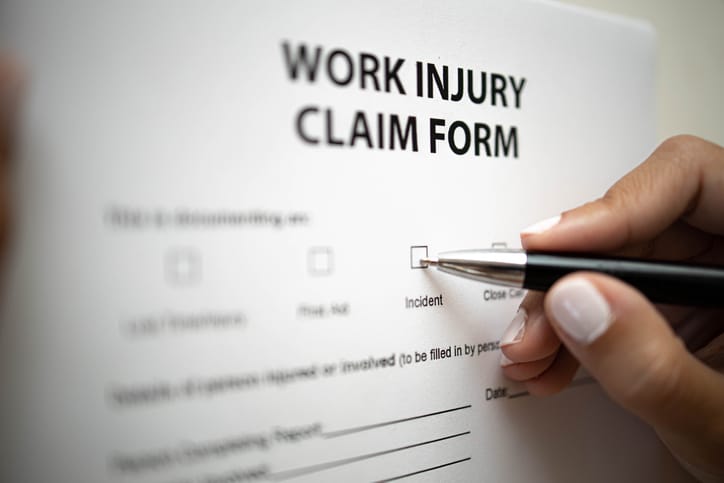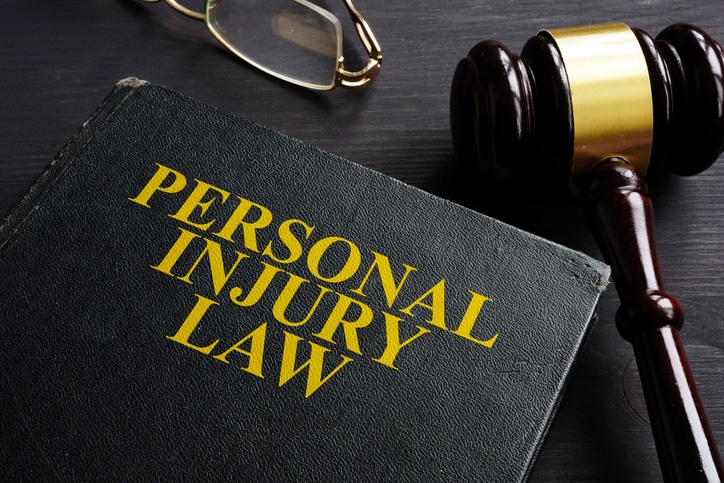Quick Summary
- Settlement timelines vary and can take weeks, months, or even years depending on the case strength, complexity, and willingness to settle. Insurance companies may delay or ignore demand letters, extending the process.
- Factors like the strength of your case, treatment necessity, injury severity, and fault determination affect the negotiation length. Disputes over policy coverage, pre-existing injuries, and fault can all prolong the process.
- After signing a settlement release, receiving the check typically takes 4-6 weeks. The process includes paying liens, deducting attorney fees, and issuing the remaining amount.
- Strategic preparation is key for successful negotiations. This includes conducting discovery, understanding case facts, setting clear goals, and considering mediation if negotiations fail before potentially going to court.
How Do Settlement Negotiations Begin?
Negotiations typically begin when the party bringing the case sends a demand letter to whom they’d like to reach a settlement with.
The party receiving the settlement demand letter could be the party that was negligent, or it could be the negligent party's representative, such as an insurance company (as in cases involving a car wreck with personal injuries).
The demand letter will include the amount the victim would like to be paid in compensation, and will also contain details that support their case. Insurance companies can take weeks to respond to demand letters, and in some cases may ignore them altogether.
A delay in insure companies responding to a demand letter could be due to a backup in the insurance adjuster’s workload or, could be due to the insurance company ignoring the demand all together.
It could also be from the insurance companies investigating your case, which can include reviewing the incident, examining your injuries, and determining who was at fault.
Settlement Negotiation in a Personal Injury Claim
If you find yourself in a dispute with an insurance company over an injury claim, the length of time for negotiations often depends on the following factors: the strength of your case, how quickly you would like to settle, and the amount for which you are willing to settle for.
These factors often come into play because insurance claims adjusters may try to lower the amount the insurance company may have to pay for your injuries from the incident. They may use certain tactics to see if you will accept a lower settlement.
The insurance companies strategy is to limit their payout for claims as much as possible. One way adjusters try to get that result in negotiations is by disputing facts and asking questions about your claim.
Elements of a claim that adjusters often call into question include:
- The necessity of your treatments after an accident
- The length of time you received treatment
- The severity of your injuries
- Whether your policy covers the claim
- If you were at fault for the accident
How To Determine The Strength of Your Personal Injury Claim
As you provide proof for your claim and answer an insurance adjuster’s questions during negotiations, the strengths and the weaknesses of your case will be brought to light. Difficulties in your claim can lengthen the negotiation process.
For example, if you were hurt in a car accident, but who's fault the accident was is in dispute, it may be a challenge to negotiate how much compensation should be paid.
If it’s hard to find who was legally responsible for your injuries, the final amount you are seeking may be more difficult to reach.
Every car accident case is different, so it’s best to speak with a car accident injury lawyer if you have any questions about the strengths and weaknesses of your claim.
How to Prepare for Settlement Negotiations
Litigation can be expensive, time-consuming, and emotionally exhausting. This is why it may be advantageous to negotiate your settlement with the opposing party in order to save on court costs, lawyer fees, and time.
Additionally, if you believe you have a relatively weak case, this may also be your best method of handling the case.
The settlement negotiations process occurs during mediation. Plaintiffs, defendants, and their lawyer gather outside of the courtroom to talk through the issues and try to agree on a monetary value.
If the parties agree to a settlement negotiation, the parties will sign the agreement, and it will act like a contract.
The parties will then file the settlement agreement with the court, and the case will be closed. The parties will not proceed to trial.
Here are some tips to help you prepare for a successful settlement negotiation:
Conduct a Thorough Investigation
Perform the full discovery process as if you are planning to go to trial. This will give you ammunition in the negotiation. Seek out witnesses, depose them or have them draft affidavits, pore through documents to find good evidence, and consult with expert witnesses on their opinions of the evidence.
Related Article: Can Affidavit Be Used as Evidence?
Know Your Case
Know everything about the case law, statute, facts of the case, evidence, and witness testimony. This will make you appear extremely prepared and may intimidate the other side.
Craft a Powerful Story
A lawyer will try their best to weave powerful and convincing stories during opening statements at every trial in order to shape the jury’s mind about what happened before they even hear any evidence.
You will want to do the same in order to try to convince the opposing party that your story is the true and correct version of what happened.
Know your goals and your lower limits. In order to negotiate settlement figures, you need to know the lowest you are willing to accept, as well as your goal amount.
Your bare minimum is usually equal to your costs, such as your lawyer fees and medical expenses. Your goal amount will include loss of quality of life, emotional distress, lost wages, and more.
Anticipate the other side’s arguments and prepare counter-arguments. You don’t know what exactly will happen in the negotiation room, but you want to be prepared for anything.
Come up with various strategies for different situations. This will enable you to argue your way to a successful settlement agreement.
Common Disputes in Injury Claims
Some disputes may arise during your car injury claim. These disputes may lead to a longer timeline to resolve your claim. Common disputes involved in injury claims include:
- Whether the insured was liable for the accident
- Whether your own negligence contributed to the accident
- Whether the insurance companies covered the accident
- The extent of your injuries
- Whether your injuries were due to pre-existing conditions
- The necessity for certain treatment
- How long you will need to continue receiving treatment
Your lawyer needs to respond to these disputes and provide additional information to support your claim in order to come to a resolution.
Settlement Negotiation Timeline
If the other party responds to a demand letter, the response will likely be in the form of a counter-offer. A counter-offer is typically the act of offering an alternative number that they would like you to agree to, but you don’t have to agree.
Negotiations can take weeks, months or even years, and usually come to an end when both parties are agreeable to a number that has been offered.
In the process of negotiating to settle, parties will typically refuse offers and make counter-offers in different amounts.
Related Article: Are Settlements Public Record?
Mediation
If you cannot settle with the at-fault party, you might move into mediation. According to the American Bar Association (ABA), mediation involves a third-party person who helps both sides agree. This is the last step between the initial negotiation and going to court. Read this article to find out what is a third-party lawsuit.
Mediation can take as little as a few hours or as much as several days. If you still cannot agree during the mediation, you might decide to file a lawsuit.
Overall, the settlement negotiation process typically takes a few weeks to a few months. If all goes well, you and the other party will agree to a fair settlement for your damages.
What Happens After a Settlement Release is Signed?
The release goes to the insurance company for processing. After you sign the settlement release, it gets sent to the insurance company. The insurance company will then process the release and close out your claim once processing is complete.
A check gets sent out to your lawyer. After your claim is closed with your insurance company, it will write a check for the settlement and send the check to your lawyer.
Your lawyer will place the proceeds in trust and pay any debts. Once your attorney receives your settlement check, they are required to place the proceeds into a trust or escrow account. If any liens are asserted against your settlement, your attorney must settle and pay those out of the settlement proceeds.
Medical liens can be asserted by providers if you have unpaid medical bills, auto or medical insurance companies if they made any payments related to your injury claim, Medicare or Medicaid if any payments were made, and child support agencies for unpaid child support.
Your attorney’s fees will then be paid out of the settlement check. After any liens are paid, your attorney will deduct proceeds for their fees. This may be a percentage of your settlement or an hourly fee plus costs, depending on your agreement with your injury attorney.
You will then receive a check. After all necessary costs are deducted from the settlement, a check will be made out for the remaining amount and be sent to you by your attorney as soon as possible.
What is a Good Settlement Offer?
Whether the case settles at the top or bottom of the acceptable amount depends on a variety of factors. One factor is the ability to prove liability on the part of the defendant who is offering to settle the case. Another factor is the ability of that defendant to prove that another party is partly responsible for the injuries in the case.
To the extent that others are at fault in a case, one particular defendant will not offer you the full value of your claim. Additionally, the facts of the case could result in a dispute between witnesses for the defense and the plaintiff. In these cases, offers could be reduced by as much as 50% to reflect the risk of winning or losing the swearing match.
Another common misconception victims have regarding the value of their case is the compensation actually awarded by juries across the U.S. for non-tangible damages like pain and suffering. In some jurisdictions, the death of a person may only bring a sustainable verdict of $250,000 per person who survives.
Although a human life may seem like it is worth a lot more than $250,000, statutory and case law restrict recovery in many circumstances. The degree of pain and suffering is often more when a victim is severely injured, but survives that if they die.
Related Article: What Is the Average Settlement Offer During Mediation?
How Long Does it Take Until I Get My Check From The Insurance Company?
Once you have completed the process of filing a personal injury claim, you'll probably be wondering how long it will take to get your settlement check. It’s true that most victims in personal injury cases are anxious to receive a settlement check to pay bills and other expenses incurred.
Remember, you don’t have to take the first check the insurance adjusters send you, which is why it is important to speak with an experienced accident attorney first. In some cases, pushing for a trail, or at least having your own personal injury attorney may increase the compensation you can receive from a settlement.
The personal injury settlement is determined after both parties have examined the evidence back and forth and found rough estimate of how much the case is worth.
Both parties will then sign a settlement agreement. The plaintiff also signs legal advice documentation giving up the right to pursue a future lawsuit.
How long does it take to get your settlement check after the release is submitted? It typically takes about 4 to 6 weeks, or as soon as possible, depending on the complexity of the case.
What if My Settlement Check Hasn't Arrived?
Here are some of the reasons your settlement check may have not arrived yet:
The Legal and Factual Matters of the Case
First, the attorney's practice areas begin by determining who is liable for the accident. In cases where liability is difficult to determine, the defendant’s insurance will offer a low settlement negotiation. This also prolongs the process of arriving at the settlement amount.
A doctor’s testimony may also be necessary. In such cases, the doctor may be asked to estimate how much of the defendant’s carelessness caused your injury, which is used to determine a reasonable personal injury settlement negotiation and free consultation.
Medical Improvement
It’s common to only process a personal injury claim once you have reached the maximum medical improvement.
Settling during treatment or while on medication will forfeit your right to go after the defendant for a higher settlement if an unforeseen injury or complication arises later on. You may be responsible for the resulting expenses.
If the Settlement is Higher than Average
The defendant’s insurer will not pay a large sum of compensation without a meticulous investigation. In cases where the settlement for car accidents reaches six figures, it’s common for the review process to take much longer. You can increase the chance of getting the most money from an accident injury claim by following your lawyer’s practice areas closely.
Other useful resources:
FAQs
1. How Long Does It Take to Receive Payment After a Settlement Is Finalized?
Payment is typically received within a few weeks to a couple of months after the settlement is finalized, depending on the terms outlined in the agreement.
2. Can the Settlement Process Be Delayed?
Yes, delays can occur due to additional negotiations, legal reviews, or if new evidence or disputes arise during the process.
3. Is It Possible to Speed Up the Settlement Process?
The process can be expedited if both parties are motivated to settle quickly and if there is clear communication and a willingness to compromise.
Get a Free Lawsuit Evaluation With Our Lawyers
The Personal Injury and Product Liability Litigation Group at our law firm is an experienced team of trial lawyers that focus on the representation of clients in lawsuits. We are handling individual litigation nationwide and currently accepting new cases in all 50 states.
If you or a loved one think you may have a claim, you should contact our law firm today for a free consultation. You may be entitled to a settlement by filing a lawsuit, and our lawyers offer you fair compensation.

 Published by
Published by 











